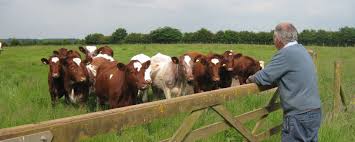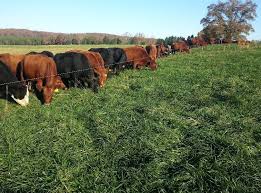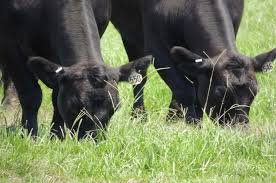Grazing management system involves pasture manipulation under grazing condition with the sole aim of feeding livestock and environmental control. Grazing livestock on pastures helps to reduce the cost of production and improves the quality of livestock products.
The type of grazing management adapted by farmers depends on resources available and management decision. However, not all grazing management systems are suitable to farmers in Nigeria, due to their costs or technical complications.
Definition and Practices in Grazing Management System
Grazing management system refers to all necessary decisions taken by the manager or farmer in order to improve livestock performance under grazing condition. Such decisions may include:
- Prevention of early morning grazing of pastures to avoid diseases and pests
- Occasional checking of noxious and toxic plant species in pastures
- Defoliation of excess forage for conservation
- Supplementation of concentrates and mineral licks
- Provision of watering points in the pastures
- Fencing of pasture paddocks to maximize output
- Careful utilization of pasture resources to avoid feed deficit etc
Read Also: Chiggers: Description, Damages Caused, Control and Preventive Measures
Advantages and Disadvantages of Grazing Management Systems

Grazing management systems have some advantages and disadvantages to the farmer, livestock and the environment. The advantages of grazing management system include the following:
- It helps to improve livestock performance in terms of live weight gain, milk yield etc
- It facilitates easy control of livestock by the farmer
- It reduces the risk of theft through rustling etc
- It assists in making management decisions concerning the farm
- It helps to combat certain pests and disease vectors in the pasture e.g. snails
- It helps to minimize pasture loss through trampling and fouling by livestock
- It helps to encourage pasture re-growth through defoliation and grazing
- It helps to boost farmer’s income and financial stability of the farm
- It encourages the proliferation of organic farms and products in Nigeria
Read Also: Scrapie in Sheep and Goats: Description, Damages Caused, Control and Preventive Measures
Disadvantages of Grazing Management Systems in Nigeria

There are some disadvantages of grazing management system in Nigeria. These include:
- Cost implication of fencing and general maintenance of paddocks is high
- Some soil related diseases are difficult to control such as Nematode infections
- The technical knowledge required for successful execution of grazing systems is lacking by farmers in Nigeria
- Some grazing systems require the use of electricity which is lacking or expensive in Nigeria
- Majority of farmers are subsistence as such the output cannot pays for the huge amount of money spent in setting such structures e.g. paddocks
- Movement of livestock is restricted to the area in paddocks only. This may affect their health
- Animals are also forced to feed on only one type of pasture species in intensively managed farms
In this article, the definition of grazing management system in pasture production has been discussed. Some advantages and disadvantages of grazing management system have also been highlighted.
Do you have any questions, suggestions, or contributions? If so, please feel free to use the comment box below to share your thoughts. We also encourage you to kindly share this information with others who might benefit from it. Since we can’t reach everyone at once, we truly appreciate your help in spreading the word. Thank you so much for your support and for sharing!

